The familiar greeting echoed against the misty backdrop of , Hunza, as the morning drizzle painted the cobbled streets silver. It was our last day in Hunza, the valley that never fails to charm with its terraced fields and snow-dusted peaks.
We had spent the night at Roomy Dastan Hotel, one of the coziest lodges in town. The rooftop offered a sweeping view of the Hunza valley — Baltit Fort perched on the hill, the old stone houses scattered like stories from another time. The weather, after days of blinding sunlight, had turned merciful. The drizzle softened the landscape, and the mountains looked gentler under the clouds.
Breakfast was the classic northern staple — paratha, eggs, jam, and tea. The aroma of fresh chai mingled with the earthy scent of wet soil. It was going to be a long day ahead; our next destination was Ghizer Valley, one of my favorite places in Pakistan — a valley that remained wild, underrated, and raw.
We had visited it once before, but that journey was rushed. This time, we were determined to linger, to explore, to feel its pulse.
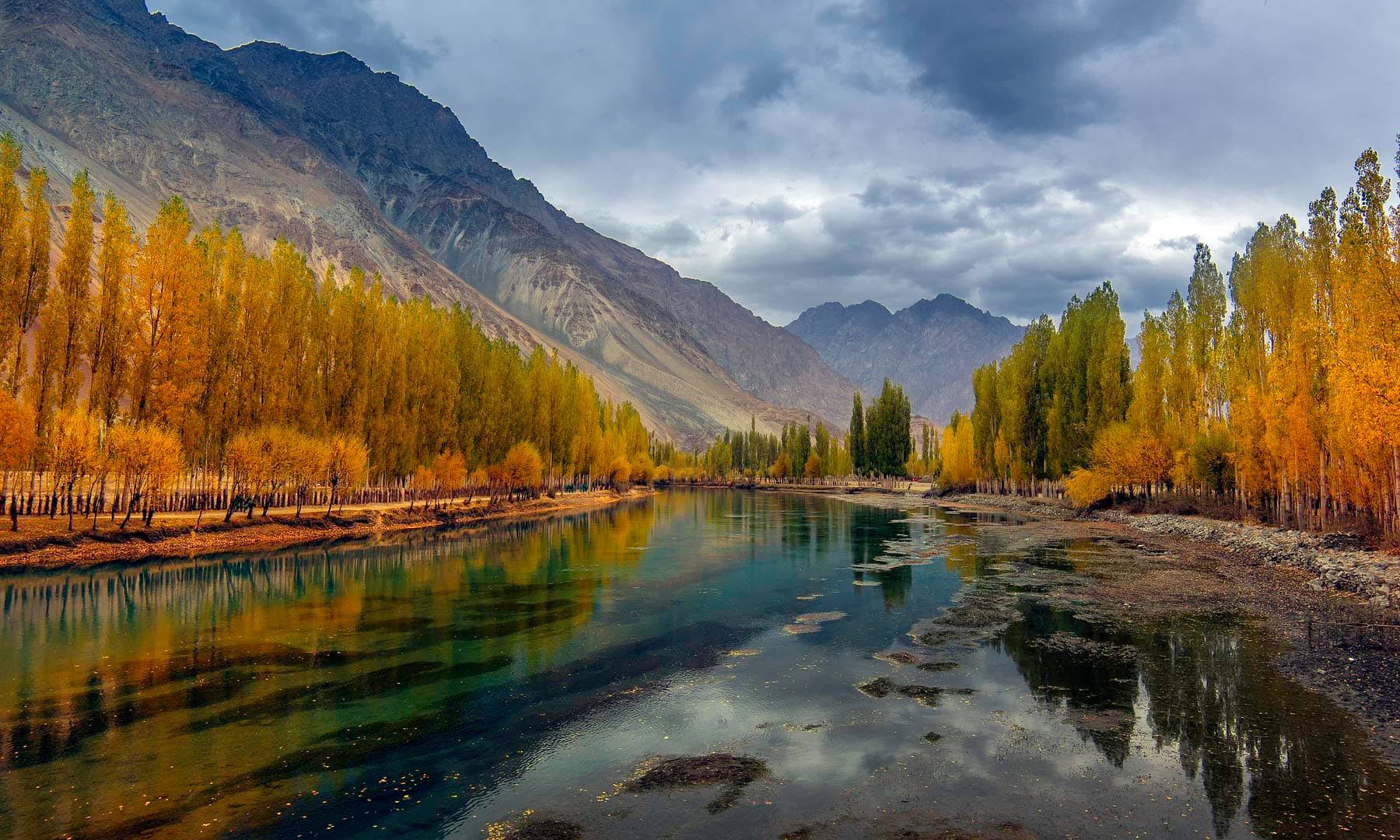
Our plan: ride from Hunza to Khalti Lake, spend the night there, and continue onward toward Phander Valley and beyond. What lay ahead was unknown — the road, the weather, and the stories waiting to unfold.
“Bismillah… In the name of Allah,” I whispered as we started our engines.
“May this be a safe and memorable journey.”
And with that prayer, our motorcycles roared to life.
From Hunza to Gilgit: Coffee, Rain, and Goodbyes
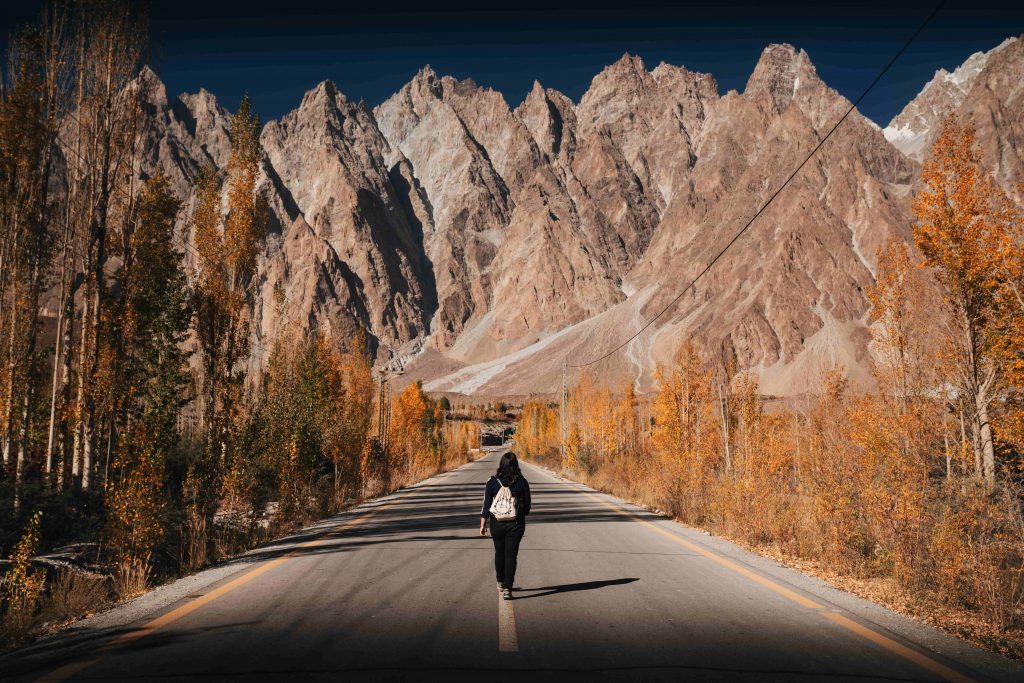
Before leaving Karimabad, we made a short detour to the bustling bazaar. The air buzzed with the chatter of tourists and the scent of apricot oil and walnut cake. We decided to stop at Cafe de Hunza, a local icon known for its coffee and walnut cake.
The coffee was excellent — rich and aromatic — but the cake, as always, divided opinions.
“6 out of 10,” Ali said casually.
“I like it,” Yasir countered, smiling.
For me, it was never about ratings. Sitting in that cozy wooden cafe, watching the drizzle through the window — it was about the moment, not the cake.
Our bill was PKR 1300 — one coffee, one juice, one cake, one bottle of water — and a few laughs.
Outside, the drizzle had turned to light rain. We put on our rain gear, tightened our bags, and began our descent toward Gilgit.
Along the way, we met Abrar, a fellow traveler, on the road — a brief but heartfelt meeting. These chance encounters always leave a mark; travelers on the same path share an unspoken kinship.
As we passed through Danyor, the rain thickened, drumming against our helmets. We stopped for milkshakes — a farewell treat for Yasir, who had been with us for ten days. His leave was ending; he’d return via Naran while we continued westward.
“You’ll get tired of us eventually,” I teased.
“Never!” he laughed.
“You guys go where no one dares to.”
It was bittersweet saying goodbye. Traveling together binds people in ways daily life never can.
Into the Ghizer Valley
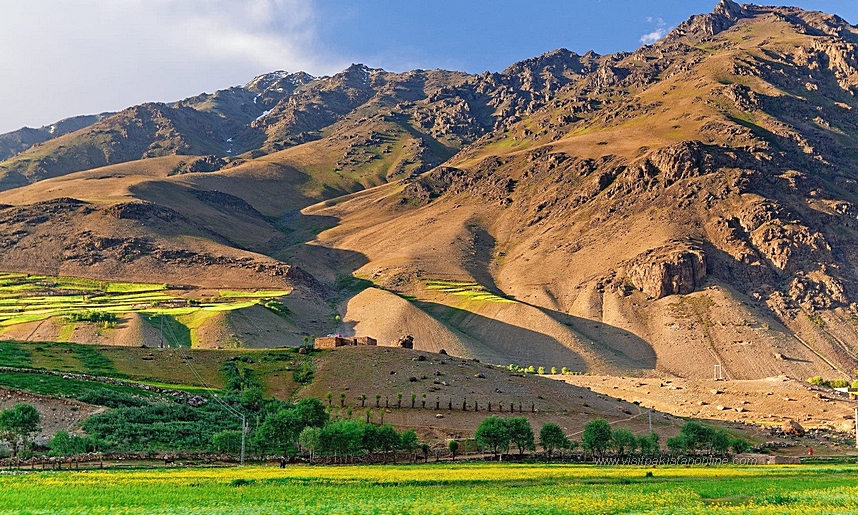
Leaving Gilgit behind, we entered the fabled Ghizer Valley — a world away from the tourist-laden Hunza. The road followed the river, its waters a cold green ribbon winding through ancient mountains.
The first village we crossed was Sherqilla, lush and alive. Children waved as we passed. The fields were vivid green, a contrast to the stark brown slopes behind them. Ghizer, unlike Skardu or Hunza, remains less developed. Suspension bridges still sway across the river; guesthouses are few and simple. And perhaps, that’s what makes it magical.
“This place could easily rival Hunza,” I said into the camera.
“It’s as beautiful — maybe even more so — but less explored.”
The weather played its part — sunlight breaking through clouds, droplets glistening on our visors, rainbows stretching across the valley. Every few minutes, a waterfall or a glacier stream would appear, tumbling violently from the cliffs.
We stopped at one point to rest and make tea. Ali pulled out a small thermos and fries from his bag. The road ahead was temporarily closed due to construction — a common occurrence here. Two hours, the workers said. We didn’t mind.
Sitting beside the roaring river, sipping tea in light rain, surrounded by emerald fields — it was the kind of pause that makes journeys memorable.
When the road reopened, we crossed a newly built bridge and continued toward Gahkuch, the main town of the region. The scenery opened up — wide meadows, houses perched above the water, farmers harvesting wheat.
The river, broad and silver, shimmered under the evening light. Locals call this area a marshland, where homes stand surrounded by shallow water, like islands of life.
Khalti Lake: A Painter’s Dream Turned Muddy
By the time we reached Gupis, the sun was setting behind the mountains. We had planned to stop at Khalti Lake, a place etched in my memory from a trip three years ago — its turquoise waters, serene reflections, and a sunset that had felt almost divine.
But this time, as I stood at the same spot, I felt a pang of disappointment. The lake had lost its blue. The once-crystal waters were now a muddy brown.
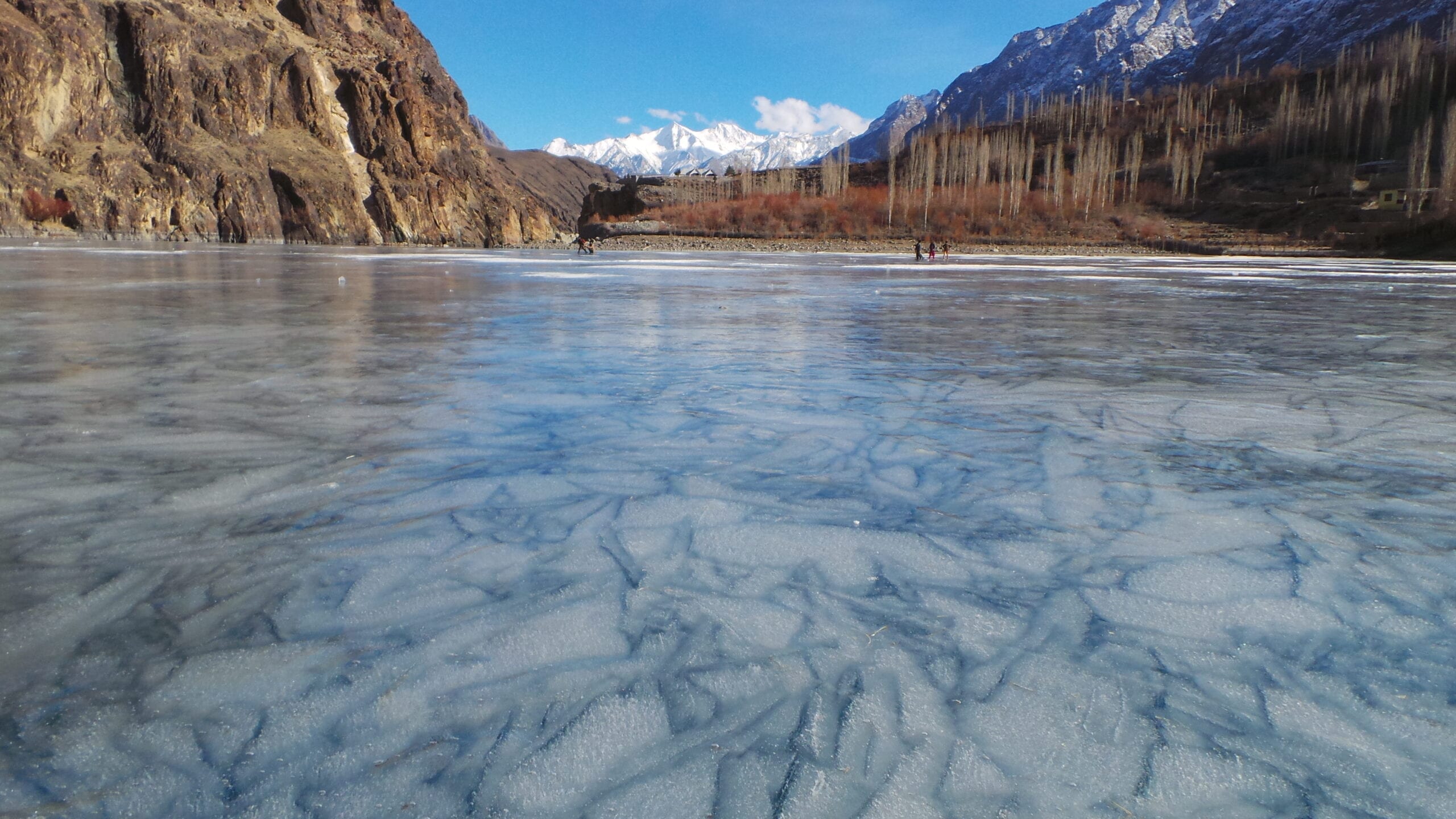
“It’s not what I remember,” I said softly.
A local explained that recent heavy rains had mixed debris with the glacier water, turning it murky. It wasn’t the lake’s fault — just nature’s mood. But it reminded me how fragile beauty can be.
We stopped for drone shots, capturing both old and new perspectives — the faded color, yet the same grandeur. Despite everything, Khalti remained beautiful — the kind of beauty that persists even when dulled by time.
We had dinner near the lake — chicken karrahi and fresh roti — the first proper meal of the day. It was simple, comforting, and perfect.
We were tired but decided to continue to Phander, another 48 km ahead. It was already 8 PM, the sky turning indigo. The road, though under construction, was manageable, and we rode cautiously through the night.
At 9:40 PM, under a blanket of stars, we finally reached Phander. The first hotel we saw welcomed us like an old friend. Coincidentally, it was the same place I had stayed during my previous visit — and even the same room.
Rent: PKR 2500.
Comfort level: Basic but clean.
Satisfaction: Immense.
As I stepped onto the balcony, the river whispered below, and I silently prayed that by morning, its waters would turn blue again.
Morning in Phander: The Calm After the Rain
The greeting felt fresh again as the first light spilled over Phander Valley. The drizzle had stopped, leaving behind a crisp, golden calm. We had arrived late the previous night, exhausted. But this morning, the valley seemed to welcome us anew.
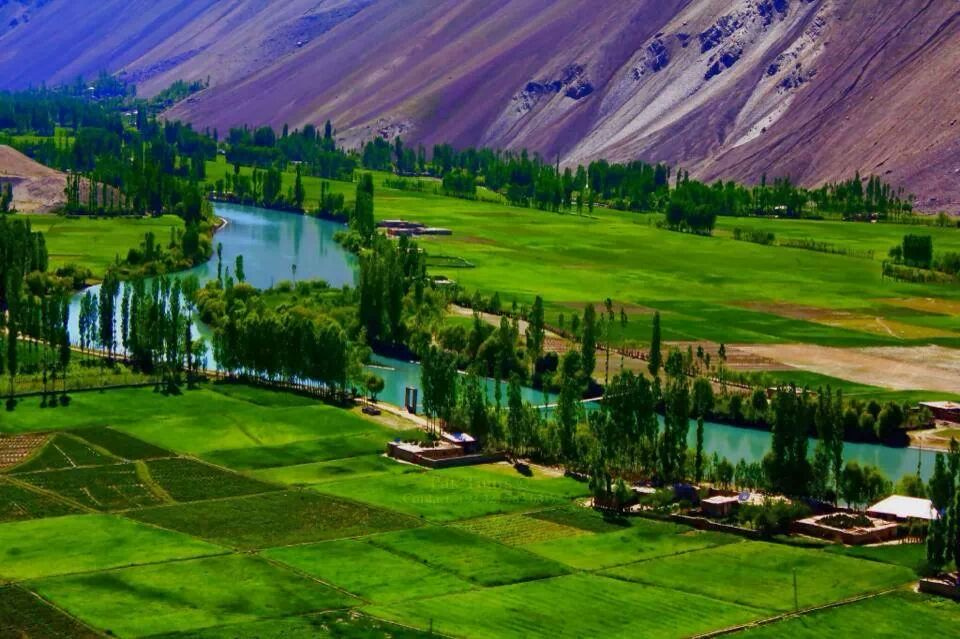
Breakfast was the usual — egg, paratha, and chai — the fuel of travelers and dreamers. Outside, the air was cool and filled with the scent of damp grass.
Our goal today was ambitious — to reach Kokush Lake, a hidden alpine gem near Langar village on the road to Shandoor Top, about two hours away by bike and another two by foot.
Locals had warned us the road was rough. But challenges often lead to rewards in these parts of Pakistan.
“Bismillah… May Allah make this journey safe and memorable,” I prayed as we kicked off once again.
The Blue Mirror of Phander
Before leaving, we stopped by Phander Lake, a glassy expanse reflecting the sky like a mirror. With no wind, the trees and mountains mirrored perfectly in the still water — so still it felt sacred.
“It’s like a painting,” Ali whispered.
We launched the drone to capture the reflections. The footage was mesmerizing — the soft clouds drifting across the lake’s surface, the shades of green blending into the river beyond.
Just ten minutes from our hotel, this spot was perfect for camping or quiet mornings. But we had roads to conquer, so we packed up reluctantly and began our ride toward Langar.
Riding to the Edge: Phander to Langar
The narrow road hugged the river, flanked by poplar trees and wheat fields. Occasionally, it dipped into small hamlets — Hunderab, Langar, and others tucked away in folds of green.
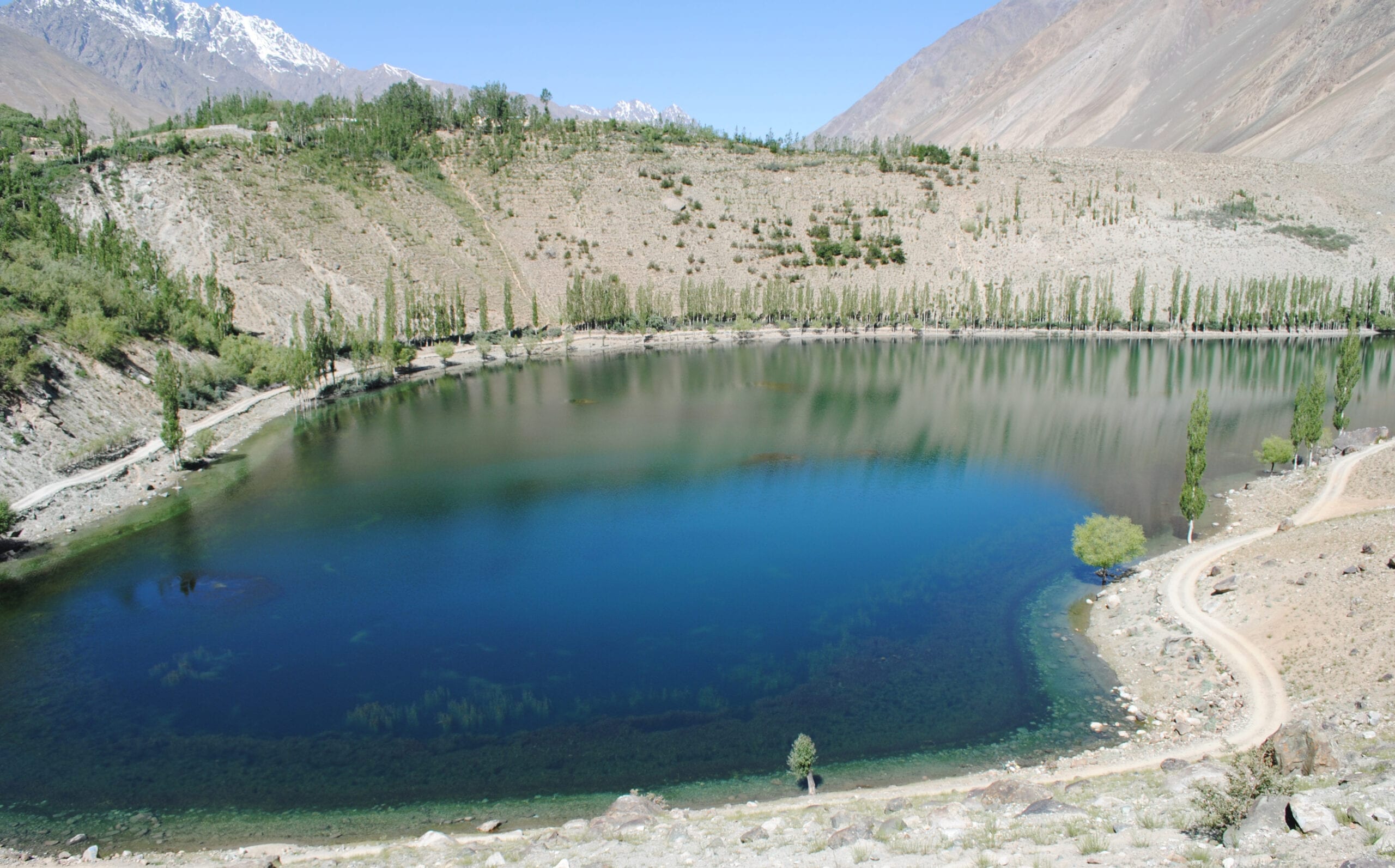
Phander itself felt larger than most valleys — more cultivated, more alive. Fields stretched endlessly, fed by streams and glacial water channels. Despite recent floods that had destroyed some crops, the resilience of the people was visible everywhere.
SCO’s 4G network surprisingly worked in most of the valley — a luxury in these parts. “Seventy to eighty percent coverage,” Ali joked. “Enough to send proof of life.”
As we ascended, the scenery changed. The slopes grew steeper, the vegetation thinner, and the air colder. Soon, we reached Langar Check Post, the last outpost of Gilgit-Baltistan before Shandoor Pass.
Ahead lay the border with Khyber Pakhtunkhwa, and beyond that, Chitral.
The road toward Kokush Lake branched left — a rough trail disappearing into the wilderness. The signs warned: Fishing prohibited without a permit. A guard confirmed: PKR 500 per day for a license.
We smiled. We weren’t here to fish — we were here to find a hidden paradise.
Off-Road to Kokush: The Hidden Gem
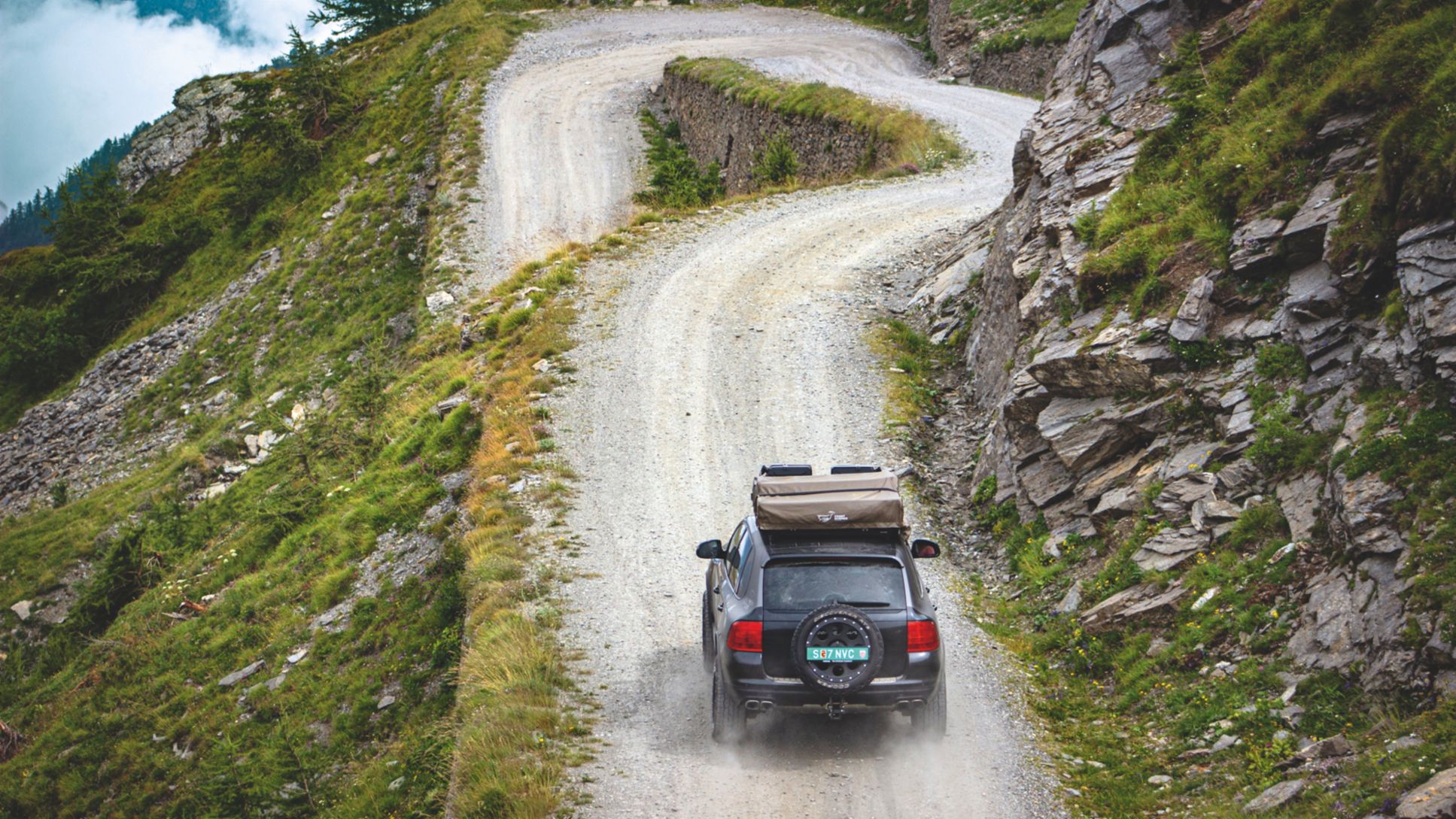
The track ahead was raw — gravel, river crossings, and narrow ledges that tested both nerves and balance. We crossed one particularly strong stream, water splashing over our boots.
On the other side, the landscape opened — meadows of wildflowers, silver streams weaving through the grass, sunlight playing hide-and-seek behind the clouds.
The farther we rode, the fewer people we saw. Finally, the road ended near a cluster of rocks. The rest would be on foot. We parked the motorcycles, secured our gear, and spoke with a few locals who warned us not to leave our luggage unattended.
“It’s a three-hour hike,” one said. “And then the same on the way back.”
We decided that Ali would stay with the bikes while I continued the trek alone.
The Trail to Heaven
The trail followed a river — its water the purest shade of turquoise, clear enough to see pebbles on the bed. The path wound through forests, meadows, and small streams tumbling down from the mountains. Birds sang in the distance; occasionally, I’d hear the sound of hooves — shepherds moving their goats to higher ground.
Every turn revealed a new surprise — wildflowers carpeting the slopes, glacial water gushing through ravines, and small wooden bridges connecting one patch of green to another.
The higher I climbed, the more surreal it became. At times, I felt lost for words.
“This might be the most beautiful hiking trail in Pakistan,” I whispered to myself.
After nearly three hours, I reached a ridge — and there it was.
Kokush Lake: A Hidden Dream
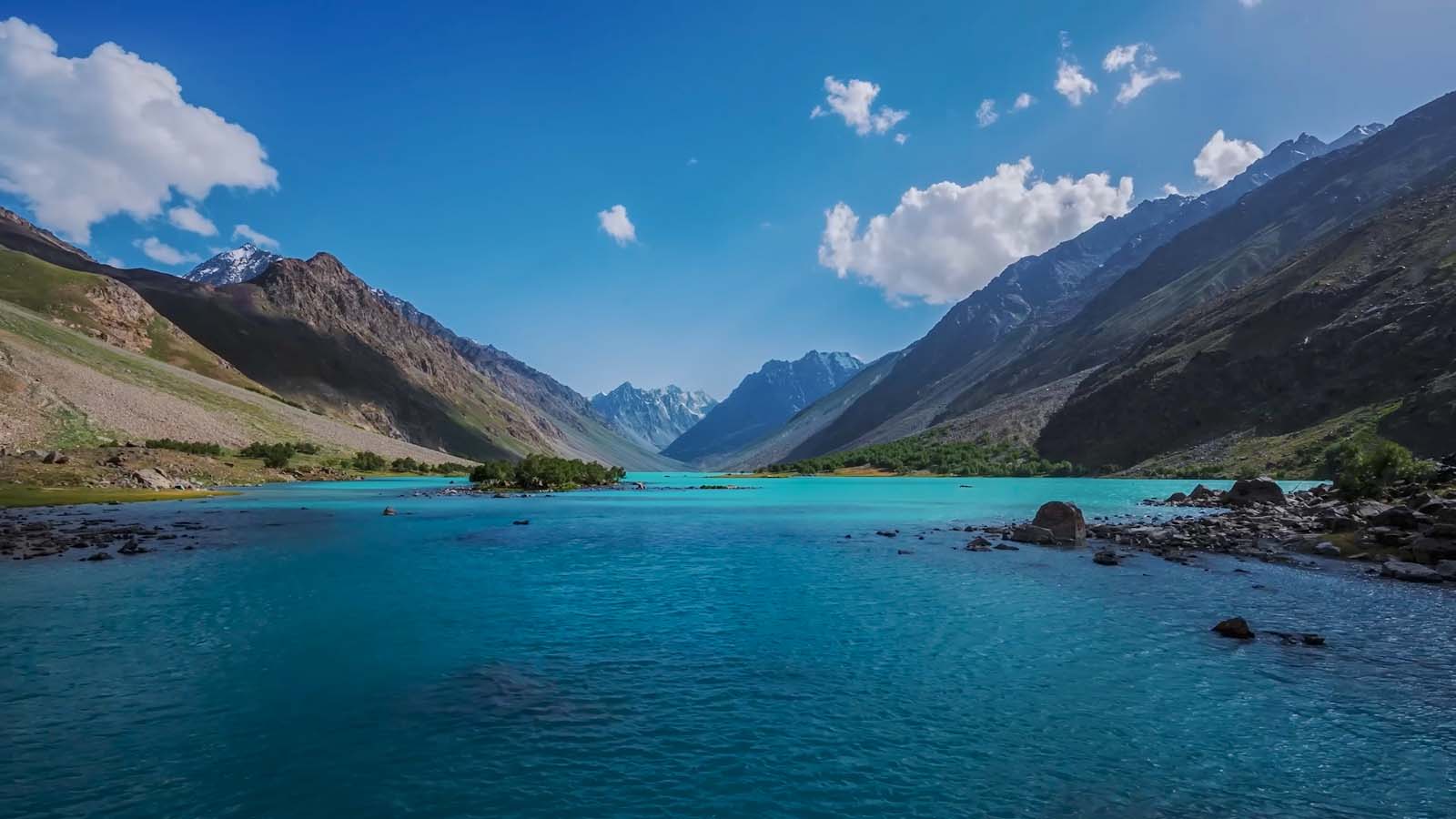
The sight stopped me in my tracks.
A turquoise-blue lake sat cradled between jagged peaks, its water glowing like liquid emerald under a patchy sun. Wisps of clouds floated low, their shadows gliding across the surface.
It was Kokush Lake — and it was otherworldly.
“Mind-blowing,” I said aloud, though no one was around to hear.
The water shimmered in alternating shades of green and blue, depending on how the light struck it. The surrounding peaks wore crowns of snow. The air was cold, thin, and filled with silence — the kind of silence that humbles you.
I sat by the water, dipped my hands into the icy surface, and watched the ripples spread. Every drop felt like a prayer answered.
Few people know of this lake. Even I hadn’t heard of it until Ali insisted we come. Now, I couldn’t believe such beauty existed — untouched, unadvertised, unspoiled.
“If you ever come to Shandoor,” I thought, “don’t miss this. Don’t.”
I wished we had brought our tents to camp here — to light a small fire, cook under the stars, and watch the reflection of the peaks dance in the lake’s mirror. Maybe next time.
The Journey Back
Descending took only two hours. I moved quickly, driven by adrenaline and awe. The sky was darkening when I reached Ali. He was smiling lazily, his motorcycle parked beside him.
“Took you long enough,” he laughed.
“Worth every step,” I replied.
We packed our bags and rode back toward Phander, the sky now glowing orange. We crossed streams carefully, headlights reflecting off the ripples. It was almost dark when we finally reached the village.
That night, we had the same familiar dinner — chicken karrahi and roti — our traveler’s comfort food. Exhausted, sunburned, and content, we sat silently by the river.
“You were right about this place,” I told Ali.
“I told you,” he smiled.
Outside, the river whispered softly under the moonlight.
Epilogue: The Unseen Pakistan
Phander, Langar, Kokush — names that few know but every traveler should. These valleys remind us that Pakistan’s beauty doesn’t always scream from postcards; sometimes it whispers from hidden corners, waiting for those who dare to seek.
The next morning, we would pack again and head east. But the memory of Kokush Lake — the turquoise water, the cold air, the solitude — would travel with us forever.
And with that, another unforgettable chapter came to a close








